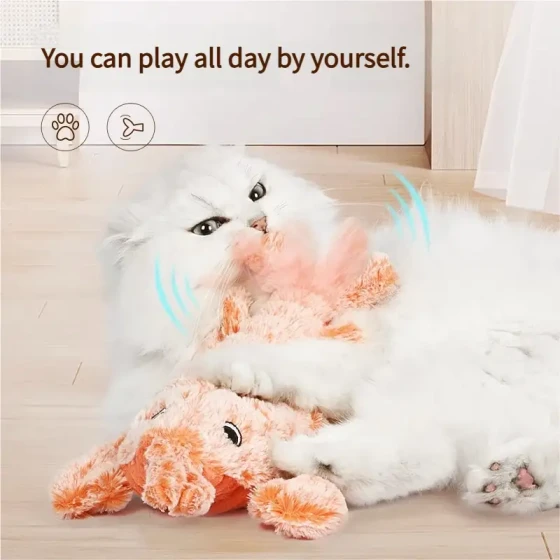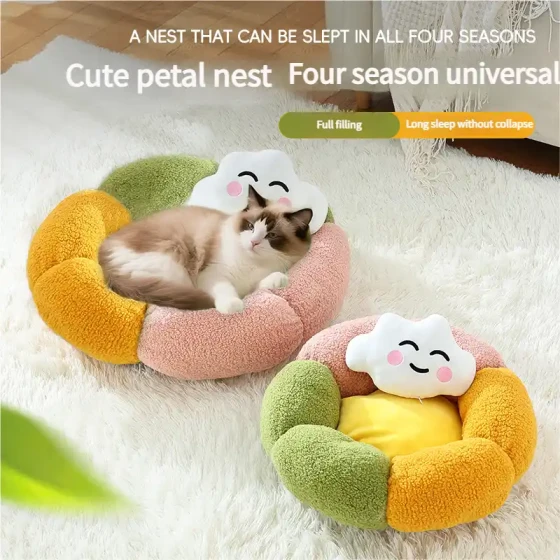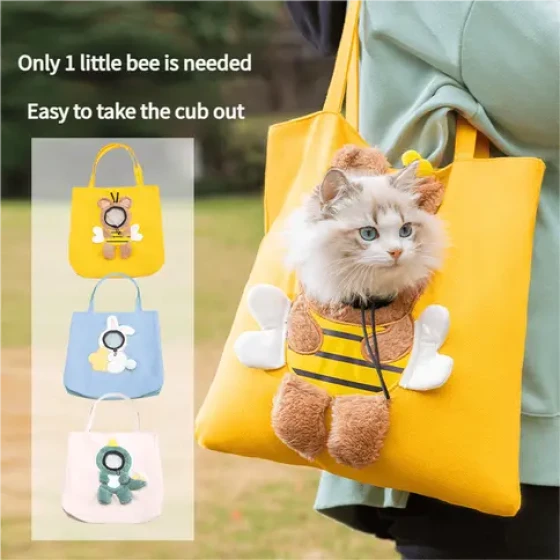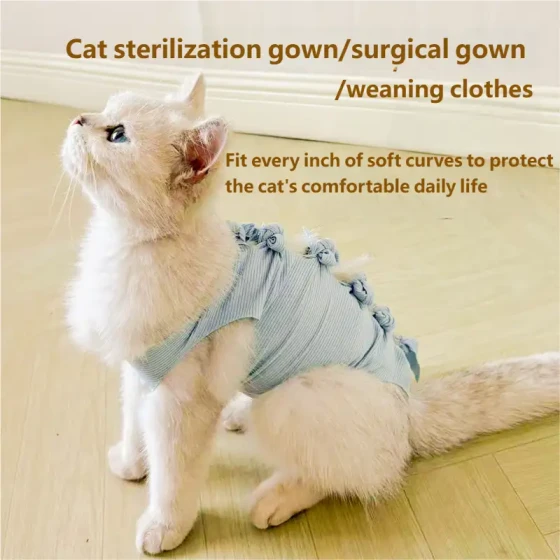Can cats drink pure milk_The truth about cats drinking milk and alternatives
Can cats drink pure milk? This seemingly simple question actually hides the unique physiological secrets of cats and potential health risks. For many cat lovers, seeing their cats longing for milk with those little eyes is heartwarming, but understanding the truth is the best way to protect their health. Simply put, most adult cats are not suitable to drink pure milk because they generally have lactose intolerance issues, which may lead to gastrointestinal discomfort after consumption.
Why are cats “unfriendly” to pure milk? This starts with their digestive system.
The digestive secret of cats: the truth about lactose intolerance
You may have heard the term “lactose intolerance.” It doesn't only exist in some humans but is a common phenomenon in cats as well. Milk contains a sugar called lactose. To digest lactose, the body needs an enzyme called lactase. Kittens produce enough lactase during their nursing period after birth to digest the lactose in mother's milk, providing energy for their growth. Imagine little kittens gulping milk—that's because they are naturally equipped with a “digestive weapon.”
However, as kittens grow up and enter weaning (usually starting around four weeks old), their diet shifts from mother's milk to solid food, and the lactase activity in their bodies naturally decreases, sometimes to 10% or less of the peak level. At this time, if adult cats are fed pure milk with a high lactose content, they lack sufficient lactase to break down the lactose.
Undigested lactose will directly enter the cat's colon, where bacteria ferment it, producing gas and acidic substances that irritate the intestines, causing indigestion. This is similar to how humans feel uncomfortable after eating indigestible foods; cats experience similar problems.
The symptoms of lactose intolerance are diverse, not just the well-known diarrhea. After drinking pure milk, cats may show vomiting, borborygmus (stomach rumbling), bloating, flatulence, and other symptoms within 8 to 12 hours. Sometimes these symptoms may be mild, causing many owners to mistakenly believe their cats can drink milk without problems. But even mild symptoms can impact the cat's intestinal health over the long term.
Besides lactose intolerance, there is another possibility that cats may be allergic to the proteins in milk. Although this is less common than lactose intolerance, it can also cause gastrointestinal discomfort or other allergic reactions in cats.
Kittens and milk: not something to be given freely
Since adult cats are not suitable to drink pure milk, what about kittens? Many people think kittens can freely drink milk, which is a common misconception. Although kittens have higher lactase activity and can digest the lactose in mother's milk, this does not mean they are suitable for drinking milk.
Cat milk and cow's milk differ significantly in nutritional content. Cat milk, designed to meet the rapid growth needs of kittens, contains much higher protein and fat than cow's milk, along with richer trace elements, potentially three to four times the value of cow's milk. Also, cat milk has relatively lower lactose content and smaller fat molecules, making it easier for kittens to absorb. Simply put, cat milk is a tailor-made nutritious meal for a “pure carnivore,” while cow's milk is prepared for “herbivores.”
Feeding kittens pure cow's milk is like feeding diluted human breast milk to babies; the nutritional content is far insufficient to meet the growth needs of kittens. This may cause delayed development and malnutrition. If you find a kitten that has not been weaned and don't have professional cat milk powder, occasionally feeding pure milk or evaporated milk might not be a big problem, but you must find suitable milk sources as soon as possible. Professional kitten milk replacers (KMR) are the best choice because their components are closer to cat mother's milk and provide the necessary nutrition for kittens.
The allure of milk: why do cats still like it?
Since pure milk causes more harm than good for most cats, why are they still so fond of milk?
There might be several reasons:
- Taste temptation: The rich fat content in milk naturally attracts cats; the fat flavor usually makes them find it very delicious. Imagine it like humans loving fried chicken and cola, knowing it’s not very healthy but the taste is hard to resist.
- Childhood memory: Cats may associate the taste of milk with the good memories of drinking mother's milk when they were young, producing a sense of nostalgia and comfort. This is somewhat like humans’ special feelings towards childhood snacks.
- Hydration effect: For some cats that dislike drinking water, milk may be an easier way to hydrate, although it is not the best choice.
As responsible cat owners, although we understand cats’ love for milk, for their long-term health, we should try to avoid feeding them pure milk.
Alternatives: Safer choices abound
Fortunately, there are many alternatives on the market that are more suitable for cats than pure milk, satisfying their curiosity about dairy while ensuring health:
- Cat-specific milk powder/cat milk: This is the most recommended choice, especially for kittens. Professional cat milk powder (KMR) or liquid cat milk is specially formulated to remove most lactose and adds protein, fat, vitamins, minerals based on cats' nutritional needs, making it easier to digest and absorb. In the Chinese market, there are many domestic brands offering cat milk powder.
- Lactose-free milk: Such as evaporated milk, this kind of milk undergoes processing to break down most lactose, making it safer than regular milk for lactose-intolerant cats. However, even lactose-free milk is not recommended as the main beverage for cats; giving a little occasionally is acceptable, mainly as supplemental hydration or a small treat.
- Pet-specific goat milk powder: Compared to cow milk, goat milk has smaller fat globules and protein molecules, making it easier for cats to digest and absorb. Some studies also believe goat milk's nutritional content is closer to cat milk. There are pet-formulated goat milk powders on the market, usually containing lower lactose, making them a better choice than cow milk. But note, goat milk is not completely lactose-free; cats severely lactose intolerant still need caution and should preferably use products labeled “pet use” and clearly low lactose.
- Small amounts of yogurt: Yogurt is fermented, most lactose is converted to lactic acid, making its lactose content lower than milk. Small quantities of plain unsweetened yogurt can be occasional treats for cats. But many commercial yogurts add sugar or other additives harmful to cats, so if feeding, be sure to choose unsweetened pure yogurt.
- Wet food and sufficient fresh water: For adult cats, the most important beverage is clean fresh water. Wet cat food contains higher moisture, helping cats stay hydrated, which is especially important for preventing urinary tract diseases. There are many ways to encourage cats to drink more water, such as providing flowing water fountains, placing water bowls in various locations, and regularly changing fresh water.
If you want to try feeding your cat a small amount of new dairy product, be sure to use a “testing” principle, starting from very small quantities and observing your cat's reactions over the next 12 to 24 hours. If any signs of indigestion appear, stop feeding immediately.
Healthy diet: the key to a cat's longevity
Milk is only a small part of a cat’s diet. Ensuring a cat’s healthy and long life depends on providing balanced and comprehensive nutrition. Professional cat food (both dry and wet) usually contains all the nutrients cats need and serves as their main food. Choosing suitable cat food based on your cat’s age, weight, health condition, and activity level is very important. If you have any questions about your cat’s diet, consulting a professional veterinarian is always the wisest choice. They can provide personalized dietary advice based on your cat’s specific situation.
Remember, scientific feeding and avoiding “random eating” allow cats to stay healthy and accompany us to enjoy a wonderful “cat life.”
Frequently Asked Questions
- Can kittens drink pure milk? Not recommended. Although kittens have higher lactase activity, pure cow’s milk significantly differs nutritionally from cat milk. Long-term feeding can lead to malnutrition. It’s best to choose professional kitten milk replacers (KMR) or pet-specific goat milk powder.
- Will adult cats definitely have diarrhea after drinking milk? Not necessarily. Some cats have better lactose tolerance or drink very small amounts without obvious symptoms. However, most adult cats are lactose intolerant, and long-term consumption may harm their health even without immediate diarrhea.
- If a cat likes drinking milk, does that mean it can digest it? Cats like the taste of milk mainly due to its fat content. Liking does not equal digestibility, just like humans liking spicy snacks does not mean they won't get stomach pain.
- Is goat milk better for cats than cow milk? Compared to cow milk, pet-specific goat milk powder is generally easier to digest and nutritionally closer to cat milk. But not all cats can fully tolerate goat milk, so it’s best to choose professional pet goat milk powder and observe the cat’s reaction.
- Besides dairy products, what else can cats not eat? Besides pure cow milk, cats cannot eat chocolate, onions, garlic, grapes, cherries, alcohol, and other foods, which may be toxic or even fatal to cats.
Sources referenced
The following information is compiled from multiple popular science articles and veterinary advice:
- The prevalence of lactose intolerance and milk risks in cats
- Reasons why kittens should not drink milk (nutritional insufficiency, lactase changes)
- Differences in the nutritional content of cat milk and cow milk
- Symptoms of lactose intolerance
- Why cats like to drink milk (taste, memory)
- Milk alternatives suitable for cats (cat milk powder, lactose-free milk, goat milk powder, yogurt)
- Emphasizing the importance of water for cat health
- Methods to encourage cats to drink water
- Other foods unsuitable for cats
- The importance of consulting veterinarians



